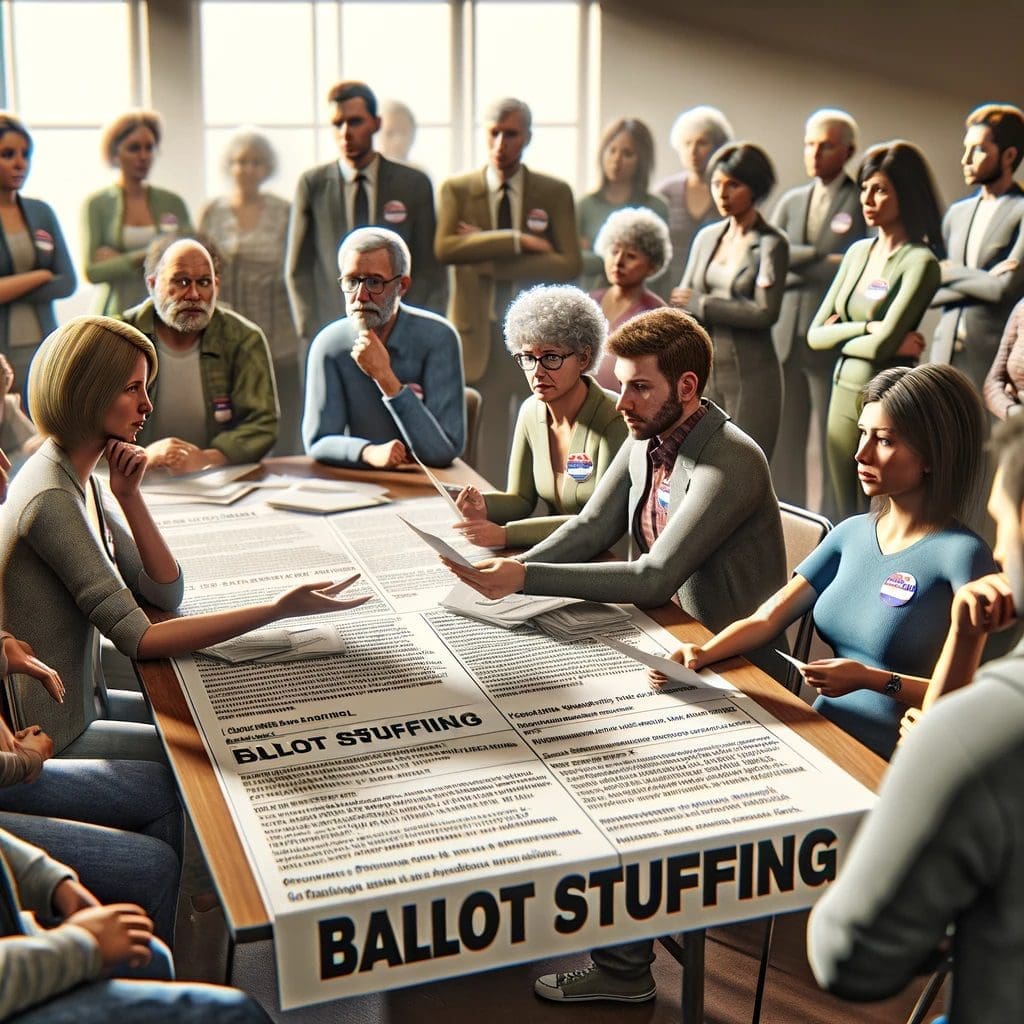Ballot Stuffing: A Threat to Electoral Integrity and Legal Responses
Ballot stuffing, a critical issue in electoral integrity, poses significant challenges to the democratic process. This comprehensive article explores the legal aspects of ballot stuffing, including the consequences, preventive measures, and notable cases within the context of both civil and criminal law.
Understanding Ballot Stuffing
Ballot stuffing refers to the illegal practice of submitting multiple ballots during an election where only one ballot per person is permitted. This form of electoral fraud undermines the integrity of the electoral process, diluting the value of legitimate votes and potentially altering the outcome of elections. The practice can take various forms, from physically adding fraudulent ballots to manipulating electronic voting systems.
Legal Framework Governing Ballot Stuffing
The legal landscape addressing ballot stuffing is extensive. In the United States, the Federal Election Campaign Act of 1971 is a key piece of legislation that regulates election campaigns to protect the integrity of the political process. This Act, along with other federal and state laws, provides a framework to address different forms of election fraud, including ballot stuffing. Violations of these laws can lead to severe penalties, including fines and imprisonment.
Notable Legal Cases Involving Ballot Stuffing
One prominent case involving ballot stuffing was the indictment of a former U.S. Congressman for conspiring to violate voting rights through ballot stuffing, bribery, and obstruction of justice during the 2014, 2015, and 2016 primary elections. This case, prosecuted by the Department of Justice, highlights the government’s commitment to combating electoral fraud and the serious legal consequences for those involved.
Challenges and Enforcement
Enforcing laws against ballot stuffing presents various challenges. Ensuring the integrity of elections requires vigilance from election officials, law enforcement agencies, and the judiciary. Election officers play a crucial role in preventing and detecting ballot stuffing. However, their effectiveness can be hampered by factors such as inadequate training, lack of resources, or political pressure.
Preventive Measures and Best Practices
Preventive measures against ballot stuffing include stringent checks and balances in the electoral process, effective training of election officers, and the use of technology to safeguard the voting process. Public education campaigns can also play a crucial role in raising awareness about the illegality and consequences of ballot stuffing.
Case Study: The Former Congressman’s Ballot Stuffing Scheme A notable case in point is that of the former U.S. Congressman charged with ballot stuffing, bribery, and obstruction of justice. In this case, the individual was involved in conspiring to stuff ballot boxes for certain candidates in multiple primary elections. The scheme involved bribing an election official and falsifying records. This high-profile case serves as a stark reminder of the lengths to which individuals may go to manipulate election outcomes and the rigorous legal actions that follow such malpractices.
Example: The Philadelphia Ballot Stuffing Incident In Philadelphia, a case emerged involving an election official who pleaded guilty to accepting bribes to stuff ballot boxes in local elections. This incident demonstrated how ballot stuffing could occur even at the local level, impacting the integrity of elections in more confined geographical areas. The case led to discussions on enhancing election security measures and heightened vigilance against such electoral fraud.
Global Perspective: Ballot Stuffing in International Elections Ballot stuffing is not just confined to the United States. Internationally, there have been instances where this practice has significantly impacted election outcomes. For example, in certain countries, international observers have reported instances of ballot stuffing during elections, leading to questions about the legitimacy of the electoral processes in these nations. These incidents highlight the global challenge of maintaining election integrity and the need for international cooperation in promoting fair electoral practices.
Technological Advancements and Challenges With the advancement of technology, new forms of ballot stuffing have emerged, such as electronic ballot manipulation. These technological developments pose new challenges for election security, necessitating updated legal frameworks and security measures to safeguard against digital forms of electoral fraud.
Conclusion
These case studies and examples illustrate the pervasive nature of ballot stuffing and the multifaceted efforts required to combat it. They underscore the importance of stringent legal frameworks, effective enforcement, and continuous adaptation to technological advancements in preserving the sanctity of elections. As electoral processes continue to evolve, so too must the strategies to protect them from fraud and manipulation.
Ballot stuffing is a significant threat to the democratic process, requiring robust legal frameworks and enforcement mechanisms to ensure electoral integrity. As technology evolves and the political landscape changes, continuous efforts are needed to adapt legal and administrative measures to effectively combat this form of electoral fraud.
Sources:
- Ballotpedia: Ballot Stuffing
- U.S. Department of Justice: Former Congressman Charged with Ballot Stuffing, Bribery, and Obstruction














